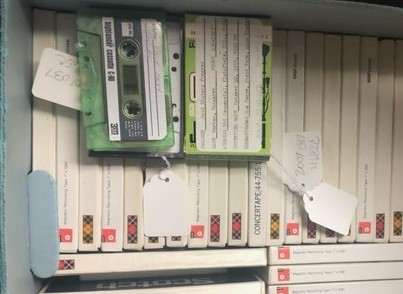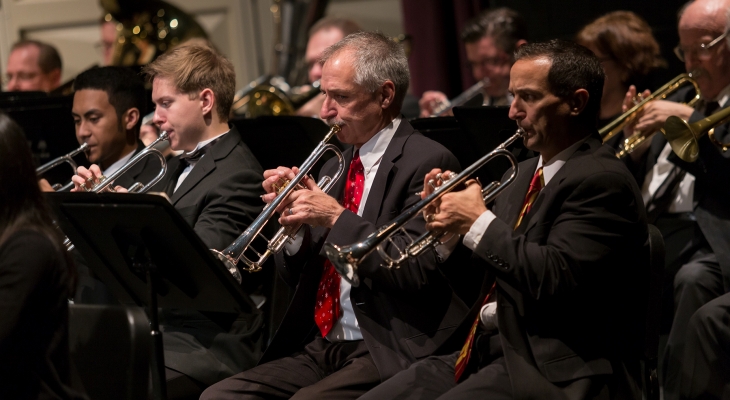
Financial Aid Application Completion Night
The Joliet Junior College Library and Joliet Area Historical Museum (JAHM) have teamed to digitize 55 audio recordings that offer first-hand accounts of life in the Joliet area during the first half of the 20th Century.
The project, which consists of more than 3,300 minutes of audio cassette reels, was funded by the JJC Foundation, with support from the nonprofit Experimental Sound Studio in Chicago. The audio comes from interviews conducted 50 years ago with residents born near the beginning of the 20th Century. The digitization is an expansion of the Library’s recent transcription of the interviews.

“Listeners will hear about the hardships faced by individuals and families and also a broader perspective on the Great Depression and the world wars,” said Amy Chellino, archive specialist with the JJC Library. “The interactions are timeless conversations between generations and are reminders of the ephemeral moments we have in our lifetimes.”
The recordings were made in the 1970s as part of an oral history project by then JJC history professor Dr. Robert Sterling. The goal was to record and preserve the memories of Joliet area residents as a reference for future generations.
“These digitized interviews provide a glimpse of this area’s past, not from the viewpoint of mayors and other leaders, but from the perspective of ordinary people whose voices and views are seldom included in the historical record,” said Sterling.
People will hear firsthand about life in the Joliet area before many of today’s modern conveniences, such as cars, refrigeration, the internet, and broader access to services like medicine.
“As this work carried on throughout the COVID-19 pandemic, it did not escape our attention that several interviews recounted the 1918 Influenza pandemic, which seemed to underwrite the importance of preserving this history,” explained Greg Peerbolte, JAHM executive director.
The audio reels had long been in storage at the JAHM. With no ability to play them back or check their condition, JJC and JAHM partnered with Experimental Sound Studio to transfer them to .wav files. Steven Wright, JAHM curator, took painstaking care to ensure the tapes were safely transported to and from the studio in Chicago.
“I encourage anyone with this type of extinct technology to digitize it quickly as possible,” said Wright.
“As I was given status updates by the studio, they did note that several reels were extremely fragile. This required extra care and time while digitizing them. Had it not been done who knows if we would have been able to save the entire interview.”
The digitization process took roughly a month, and the audio was uploaded to the website Internet Archive.
Sterling said the digitized recordings of work his class did 50 years are very satisfying both professionally and personally.
“I hope that future generations will gain an appreciation and understanding of this area’s history as recalled and recorded by ordinary people in the Joliet region,” said Sterling.
“Memories are irreplaceable,” added Peerbolte. “While we can easily find static information from resources such as directories and newspapers, the recollections and reactions of individuals who lived through historic events are rare and are a priceless gift to the community.”
The digitization project was funded by the JJC Foundation through the James P. and Mary Clare Sczepaniak Memorial Fund, which is designated for history purposes.
Peerbolte said the project represents a strong and continually expanding partnership between the JAHM and JJC.
“As the nation’s first public community college, JJC is a flagship organization that we are proud to partner with to bring these critical stories from our community back to life,’ said Peerbolte.
For media inquiries, contact Communications and Media Coordinator Scott Harvey at sharvey@jjc.edu.

